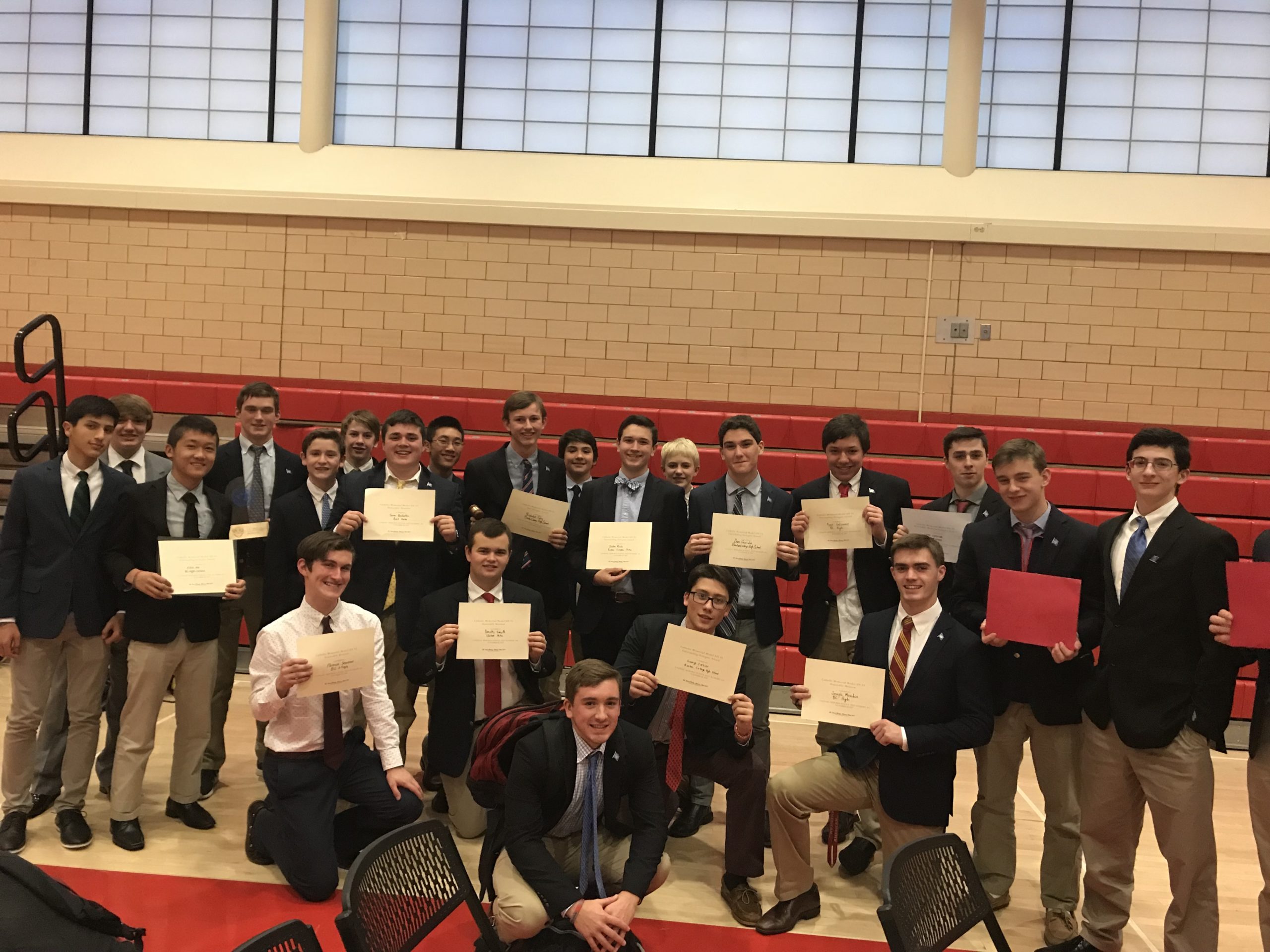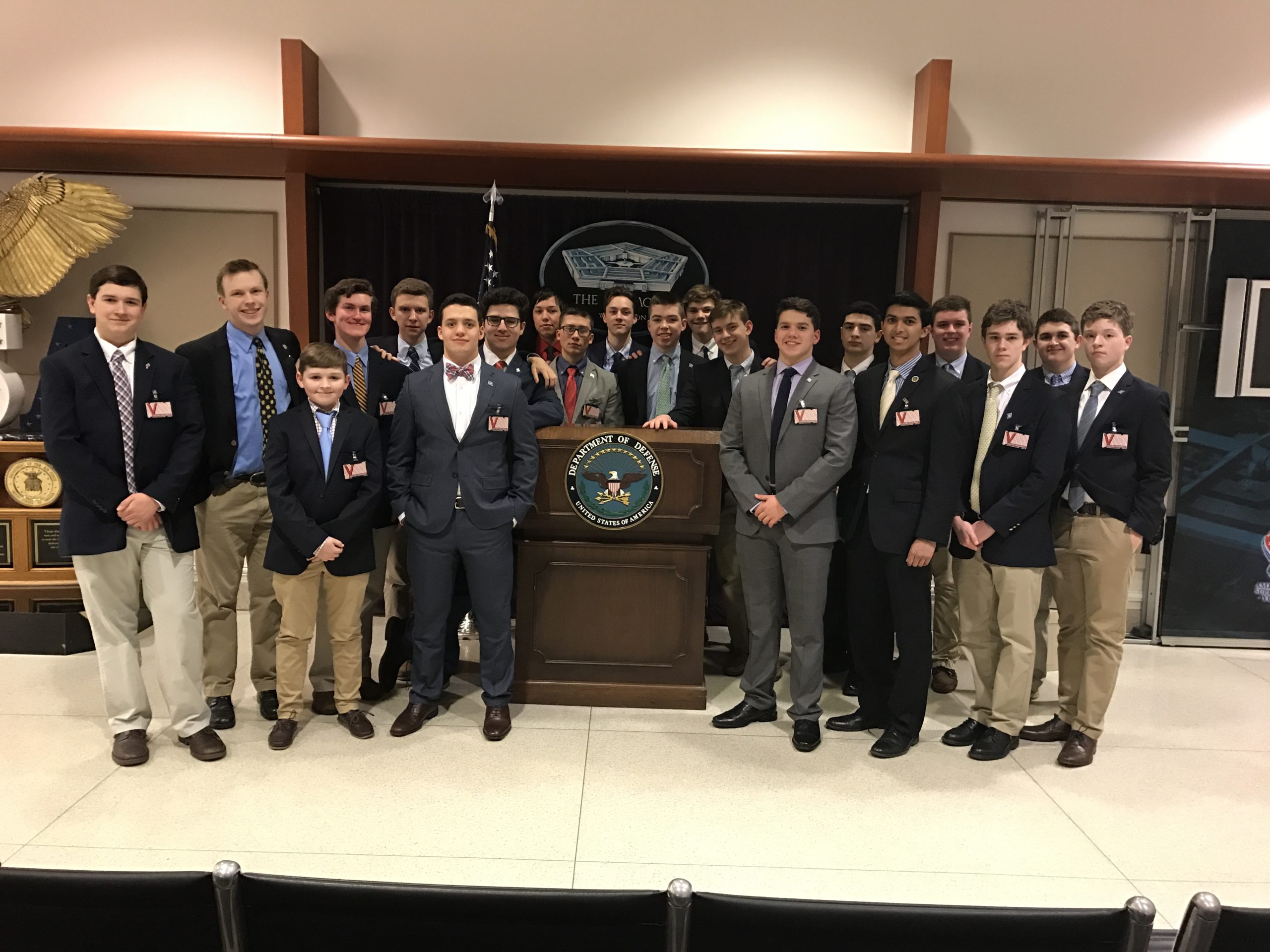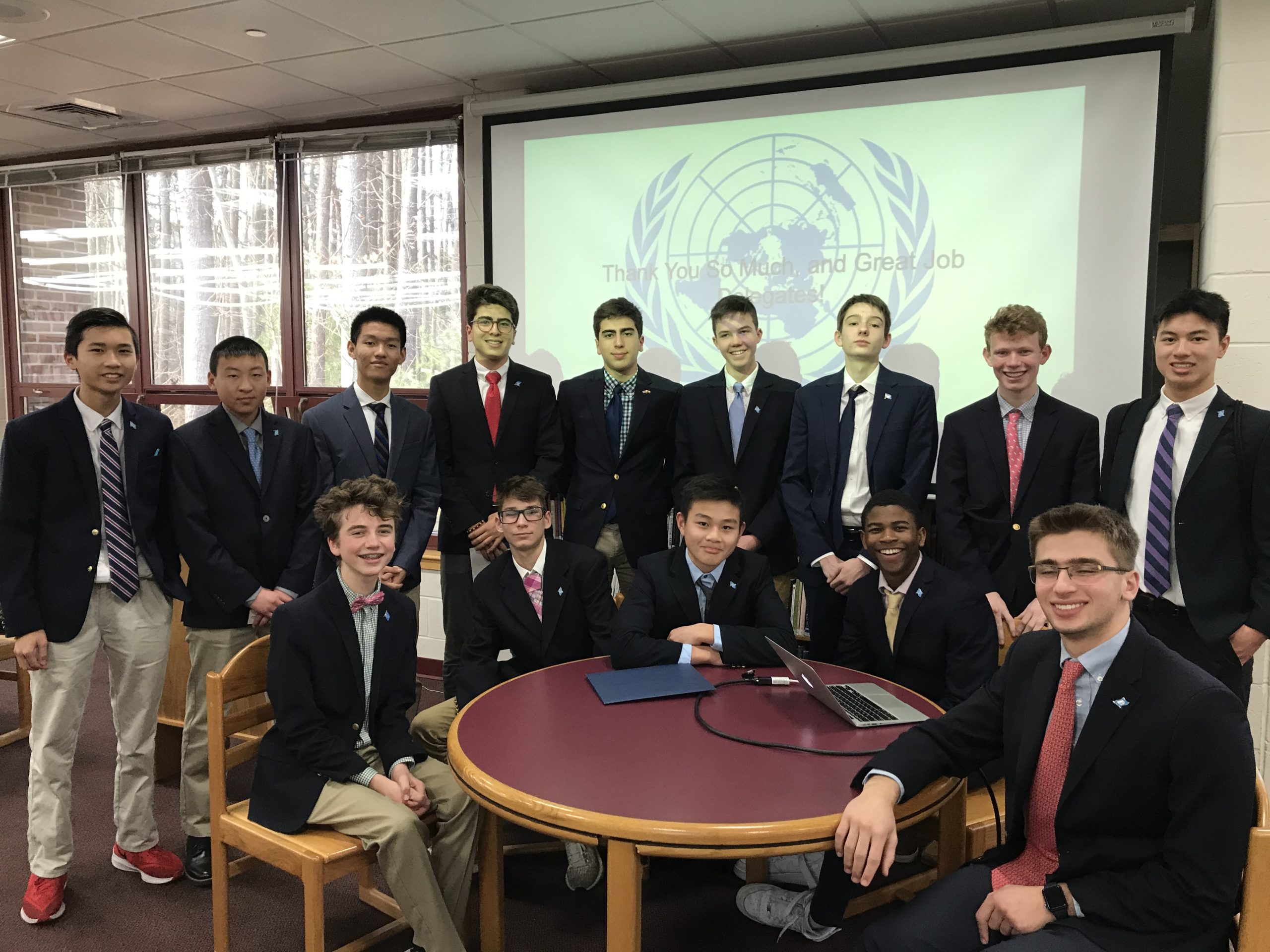Committees & Background Guides
Committee background guides will be posted on February 7, 2024
Conference Position Paper
Preparing a one to two page double spaced position paper is required for all delegates at the conference. We require this to focus everyone’s attention on the committee topics ahead of time. We have found that preparing these promotes more thoughtful discussion. Do not let this requirement impede your decision to attend this conference. We are only trying to make the discussion better.
Committee Levels
A = Advanced
I = Intermediate
All Abilities = Any Level
Middle School = Middle School specific
Awards
The Ben Maher ’11 Best Position Paper Award:
Ben Maher was a two-time BC High Model UN Secretary General. He continued his Model UN work in college at Georgetown University. He had and continues to have now, a great love of writing including his work as a journalist with incredible interviews with the Occupy Wall Street protestors in Washington, DC. It is why we named this award after Ben.
A one to two page position paper is required for all participating delegates at the conference. We require this to focus everyone’s attention on the committee topics ahead of time. We have found that preparing these promotes more thoughtful discussion. Do not let this requirement impede your decision to attend this conference. We are only trying to make the discussion better. Delegates have two choices:
1. Submit the paper one week early to be considered for the Benjamin Maher’11 Best Paper Award, on February 28, 2024 by emailing the paper to the appropriate BC High Committee Chair. These papers must be properly cited using the MLA format.
OR
2. Bring a hard copy with them to the conference on March 2, 2024.The Committee Chair is happy to help you with the paper. His school email address can be found on the cover page of the background guide.
The Chris Gidopoulos ’95 People’s Choice Award
We thank Catholic Memorial High School and Mr. Vin Bradley for creating the idea for this award. We name this award after Chris Gidopoulos’95. Chris was an amazing, award winning Model UN delegate. He continued Model UN at Harvard University. When he passed away unexpectedly in 2013, BC High Model UN decided to name the People’s Choice Award in Chris’ honor.
The Austin Martin ’95 Distinguished Delegate Award Given in committee. Austin was a BC High Secretary General who wrote our club’s constitution. He was known as Mr. Model UN. He is currently a global stock analyst who works in the international business world.
History
Founded in 1986, the BC High Model United Nations Club gives students the experience of diplomacy and learning about international issues. The BC High Model United Nations Club engages in an authentic simulation of the United Nations system by learning about the UN system, the skills of debate, compromise, conflict resolution and negotiation. MUN team members have fun learning about the workings of world diplomacy through the lens of current events.
Currently our club has 250 members. Students participation choose their participation levels. There are weekly Wednesday meetings, weekend conferences, or overnight conferences. Some students attend everything while others participate when they are able.
Registration & Schedule
BC High Model UN XXXII
BC High MODEL UN Conference XXXII SATURDAY MARCH 2, 2024 9:00 a.m. to 4:00 p.m.
Cost per delegate: $45. There are no delegation or moderator fees.
Only an adult moderator affiliated with your school may register. All delegates must be accompanied by a school approved adult. No student may register their school nor attend the conference without an adult. An email registration and a promise to pay the delegate fees is required. Once received, we will send you a request for your committee and country preferences.
It is better to underestimate your delegation total than overestimate it.
A $100 deposit is due by January 23, 2024. Make a credit card payment or a check payable to BC High., 150 Morrissey Blvd, Boston, MA 02125.
The $100 deposit reduces the total balance due for each school. For example: 10 delegates x $45 =$450. Subtract the $100 deposit, $450-$100= $350 balance due.
BC High Model UN Conference XXXII is an in-person conference.
*As of January 23, 2024, registration is now closed*
Important Dates
Jan. 23, 2024
Registration and $100 deposit, checks made payable to BC High. Tell us your
committee and country preferences as well as the number delegates that you anticipate
attending. It is better to underestimate than overestimate your delegate totals. Contact
Secretary General Zain Khan ‘24 with questions:
Zain Khan ’24, Secretary General: [email protected]
Director of Finances
Joachim Arokiaraj ’25: [email protected]
Assistant Director of Finances, Vedant Agarwal ’25:
[email protected]
Feb. 7, 2024
Delegates totals are fixed on this day. After this date, schools are financially responsible
for the reserved delegate total. Final payments are due. Background guides and country
assignments posted.
Conference Chair Matt Hunt ’24 sends moderators committee assignments
Matthew Hunt ’24: [email protected]
Feb. 16, 2024
Final payment is due to BC High. Make all checks payable to BC High 150 Morrissey Blvd. Boston, MA 02125
Attn: Dr. Nick Argento Model UN Moderator









